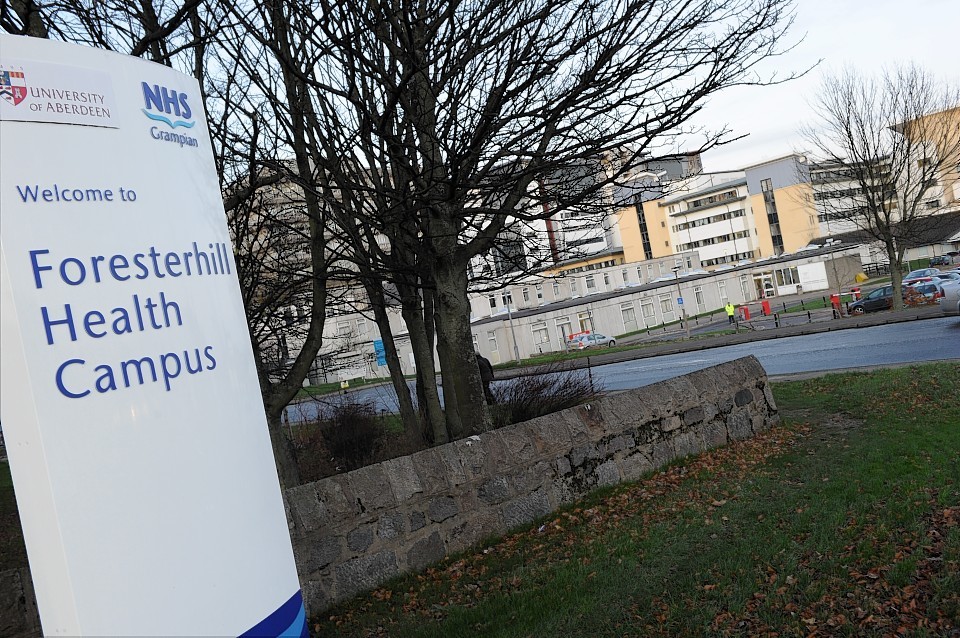More than £7million has been spent on sending NHS Grampian patients to private hospitals in order to meet strict waiting time targets over the past two years.
The bill for private treatment has soared as more than 2,000 people have been dispatched to Glasgow, Edinburgh and Dundee for operations since 2012 while the north-east health board struggles to cope with demand.
NHS Grampian, which is grappling with an unprecedented recruitment crisis, said it hoped to cut spending on private healthcare with the opening of four new operating theatres at Aberdeen Royal Infirmary and Woodend Hospital.
But the spiralling bill has angered patient watchdogs, who say taxpayers money should not benefit private healthcare companies.
New figures show that just under £4million was spent in 2012/13 on private hospital bills – up more than 10 times on the year before.
Last year, the total came to £3.1million.
Jean Turner, of Scotland Patients Association, said boards had to be open with the Scottish Government on the challenges they were facing in meeting waiting time targets – and ministers had to take heed.
She said: “It always makes me angry when the NHS is spending taxpayers money in the private sector like this.
“I feel it is bad management that we don’t have the core staff to deal with this problem.
“The private healthcare sector is in it for the easy bits. They don’t train doctors or nurses and any problems with treatment tend to be fixed by the NHS.
“It is unacceptable when the NHS’s bill for private healthcare goes up like this.
“Health boards are obviously struggling to meet targets and they have to rely on the private sector to make it work.”
Patients are generally sent by NHS Grampian to Ross Hall Hospital in Glasgow, Murrayfield Hospital in Edinburgh and Fernbrae Hospital in Dundee.
The most common conditions for north-east patients treated by the private sector last year were cataracts (165 cases), impacted teeth (43), gallstones (29), trapped shoulder tendons (28) and knee replacement (25).
A spokeswoman for NHS Grampian said: “These figures relate to patients treated privately in order to meet their Treatment Time Guarantee.
“We are committed to meeting the 12-week target for all patients. Currently it is not always possible for us to do this within Grampian. There are protocols in place which allow for referral to other centres – both NHS and private.
“We have invested £16million in new theatres at Woodend and ARI. These will improve our ability to treat patients, within waiting times, in the north-east. Once these theatres are fully operational we would expect to see a reduction in our use of the private sector.”
A spokesman for the Scottish Government said the figures represented a “tiny fraction” of the overall number of patients being treated by NHS Grampian.
He added: “Where there are short-term capacity issues, the Scottish Government expects boards to use other facilities in other areas, within the NHS or in the independent healthcare sector.”
Consultants warned last month that patients’ lives would be put at risk if vacant posts at Aberdeen Royal Infirmary were not filled urgently.
In a damning report to the health board, senior medics claimed they might even struggle to provide resuscitation at the city’s flagship emergency care centre.
NHS Grampian medical director Dr Roelf Dijkhuizen said a “Plan B” – pulling doctors from other wards – was an option if the posts remained empty.
The difficulties in attracting health workers to the north-east have been put down to the cost of property and living, fuelled largely by higher than average oil and gas industry wages.
Campaigners say NHS and other public sector staff should be entitled to an “Aberdeen weighting” allowance, similar to the higher rates of pay which have traditionally been offered in London.
